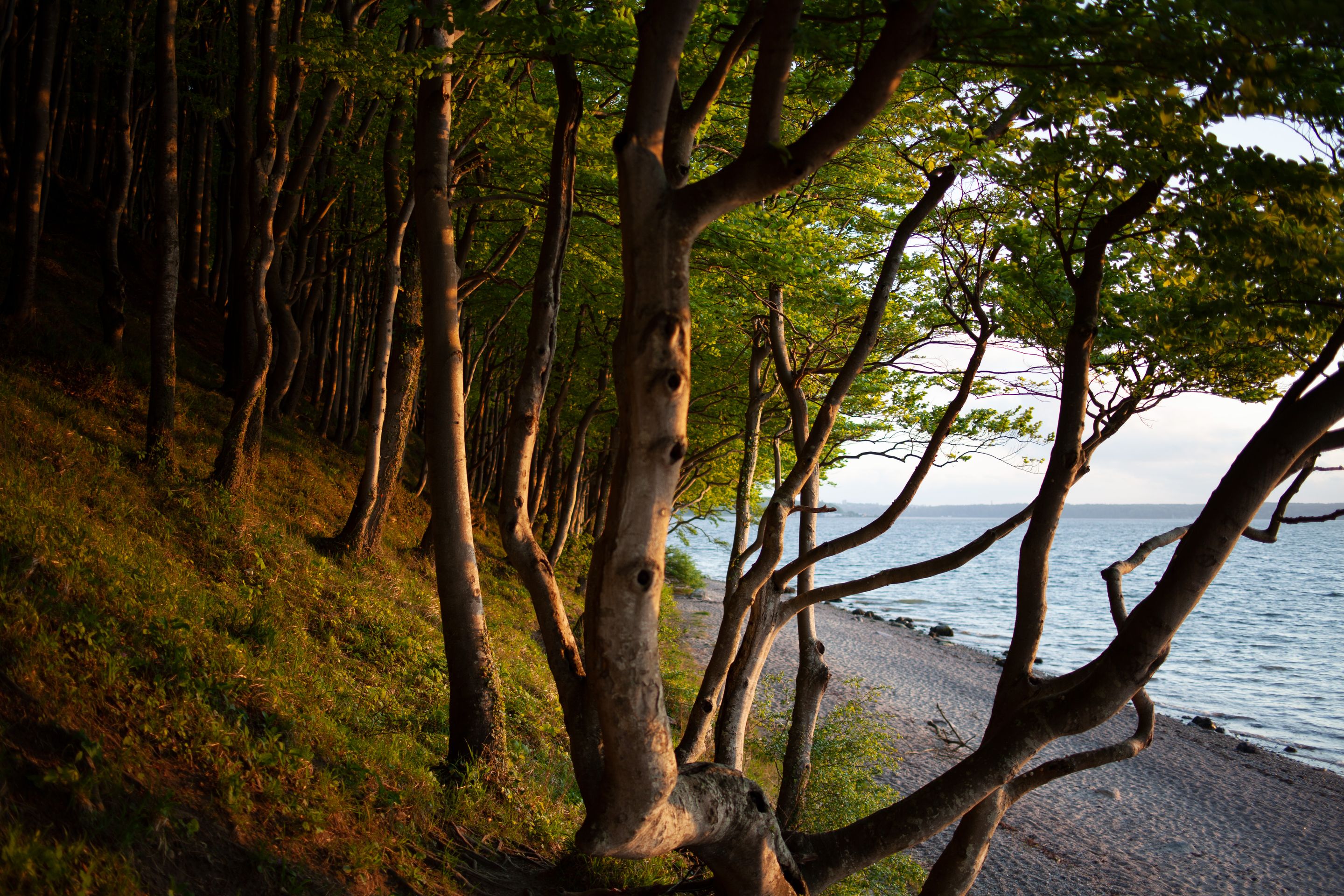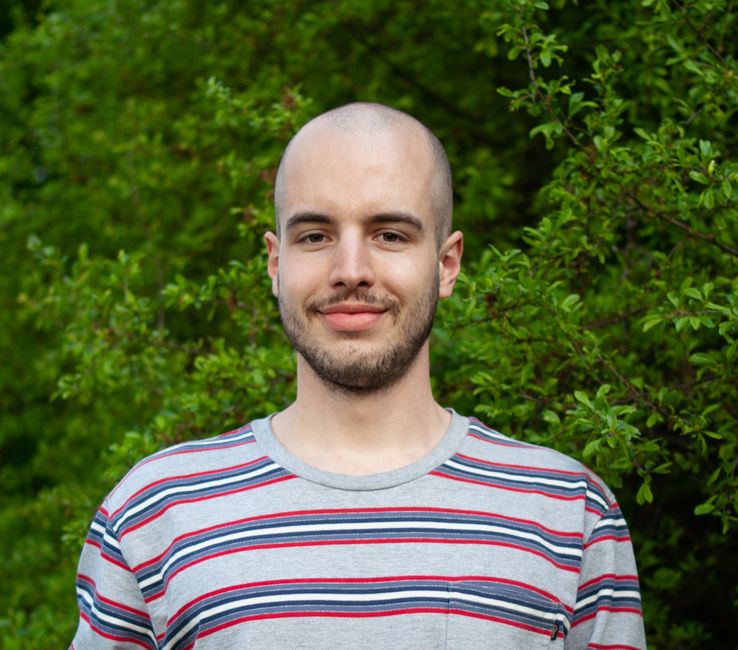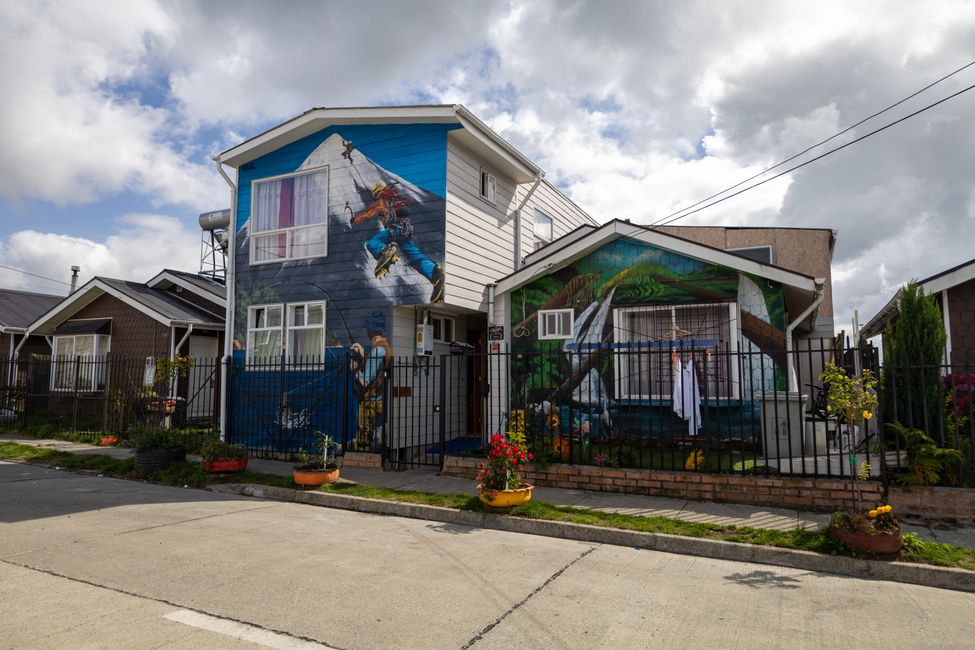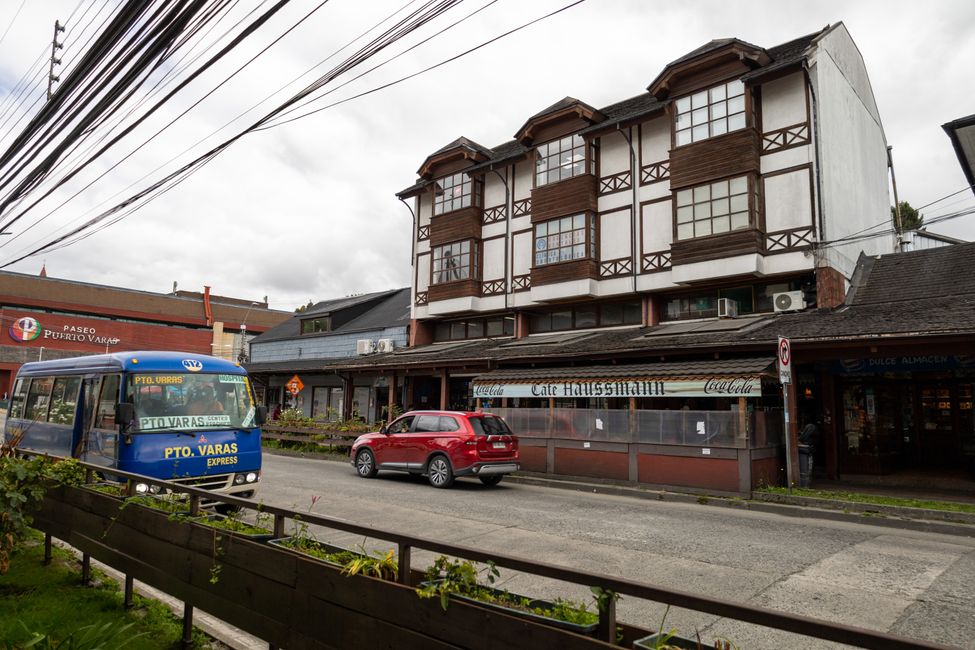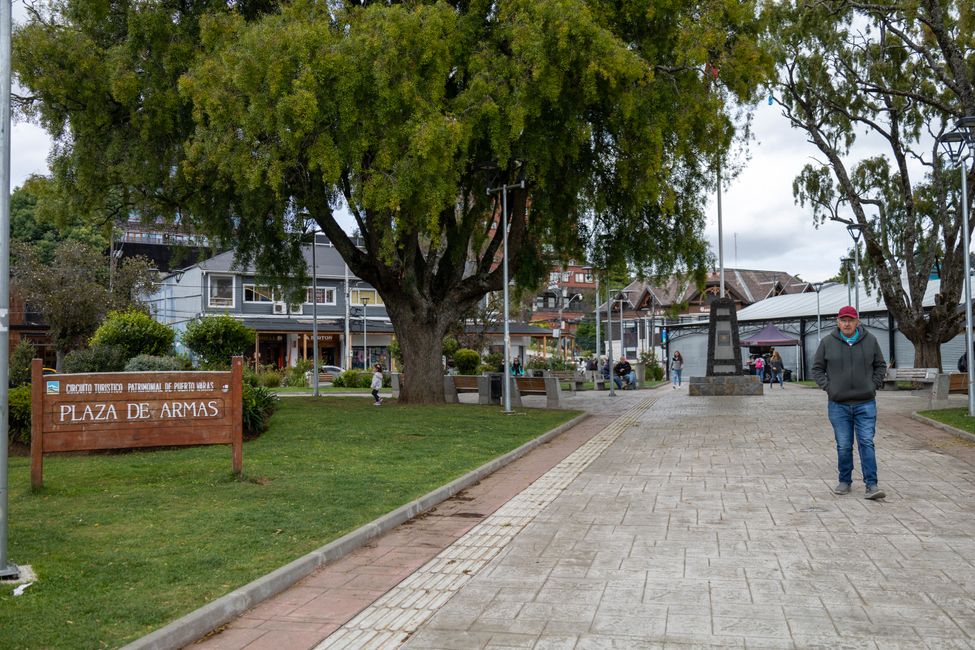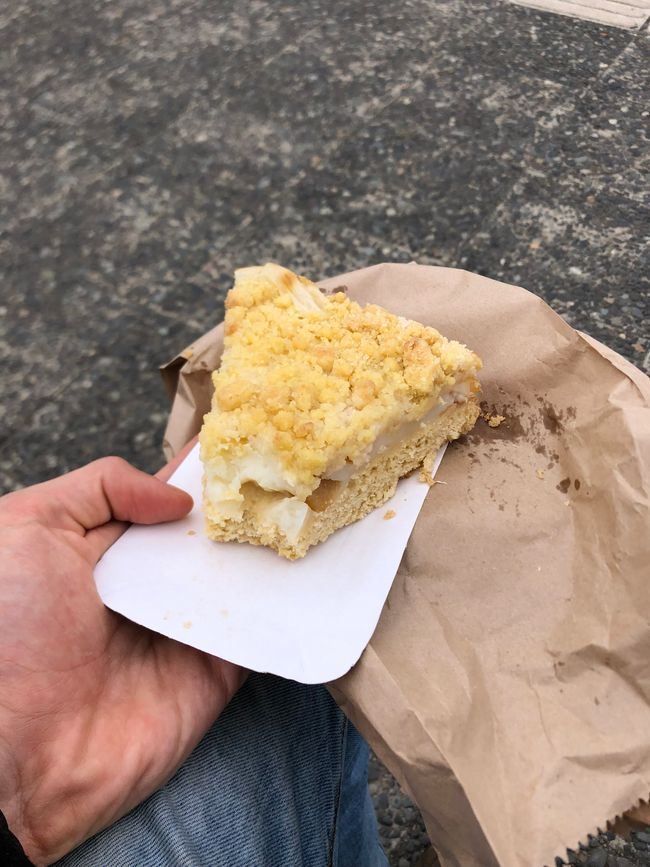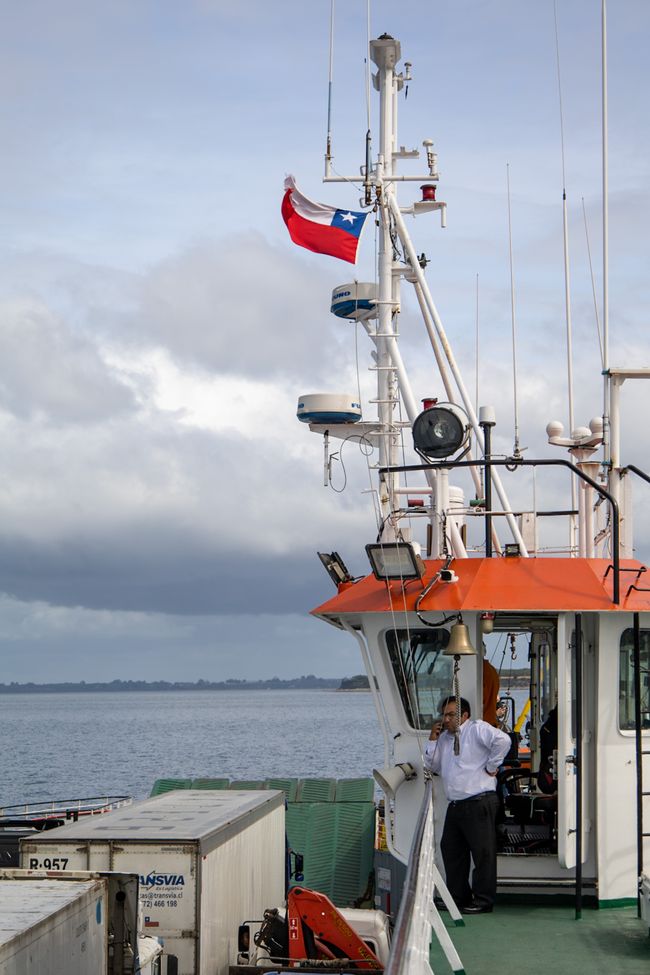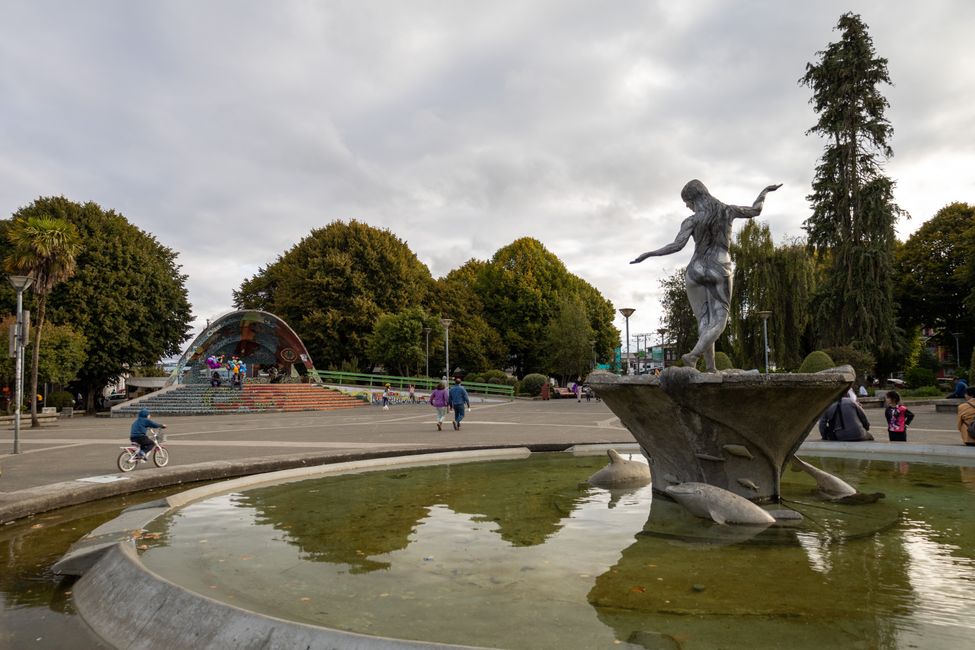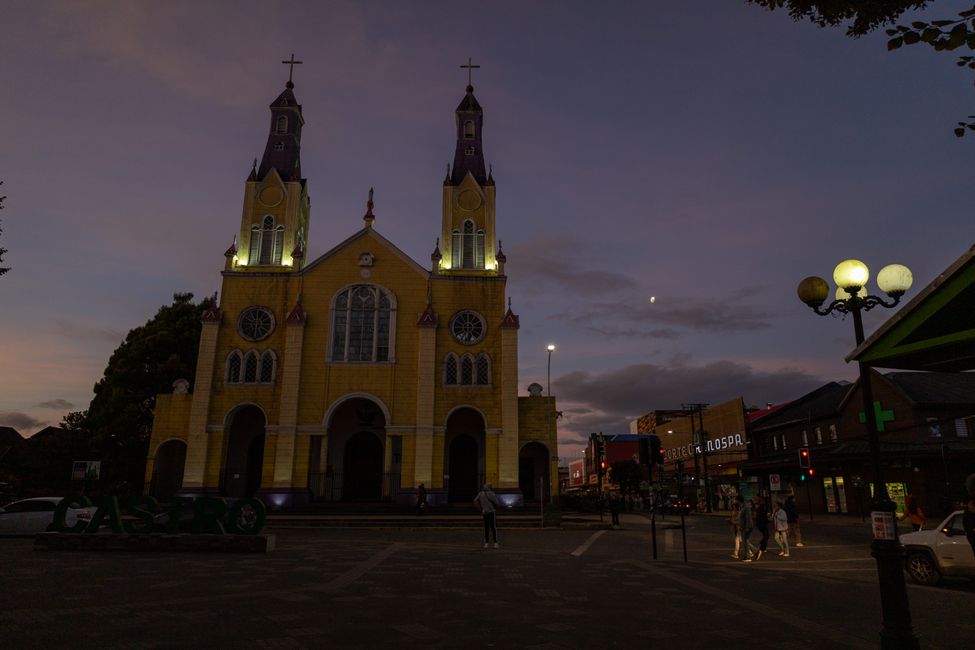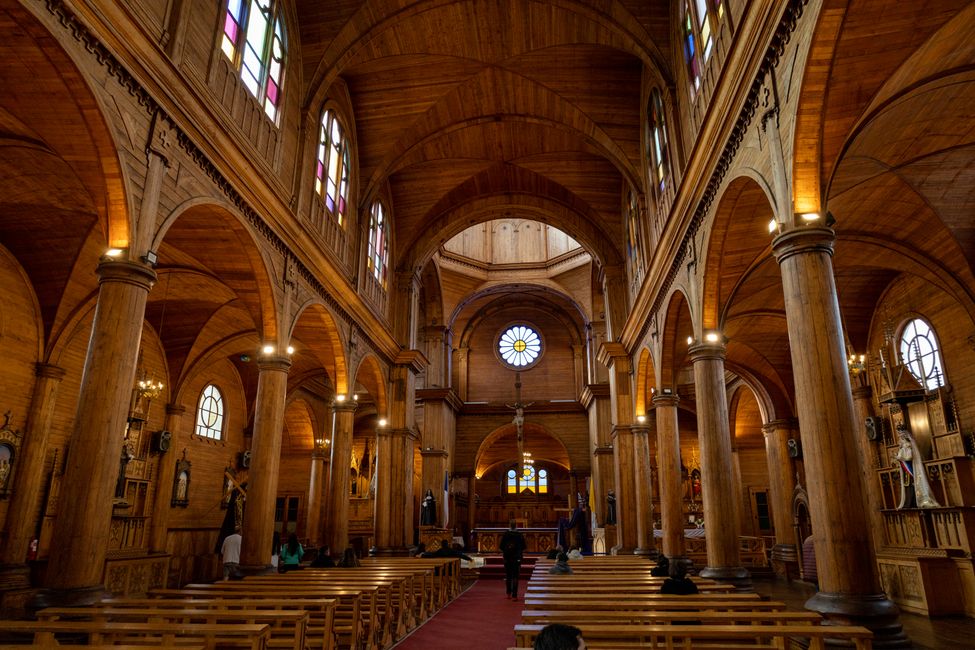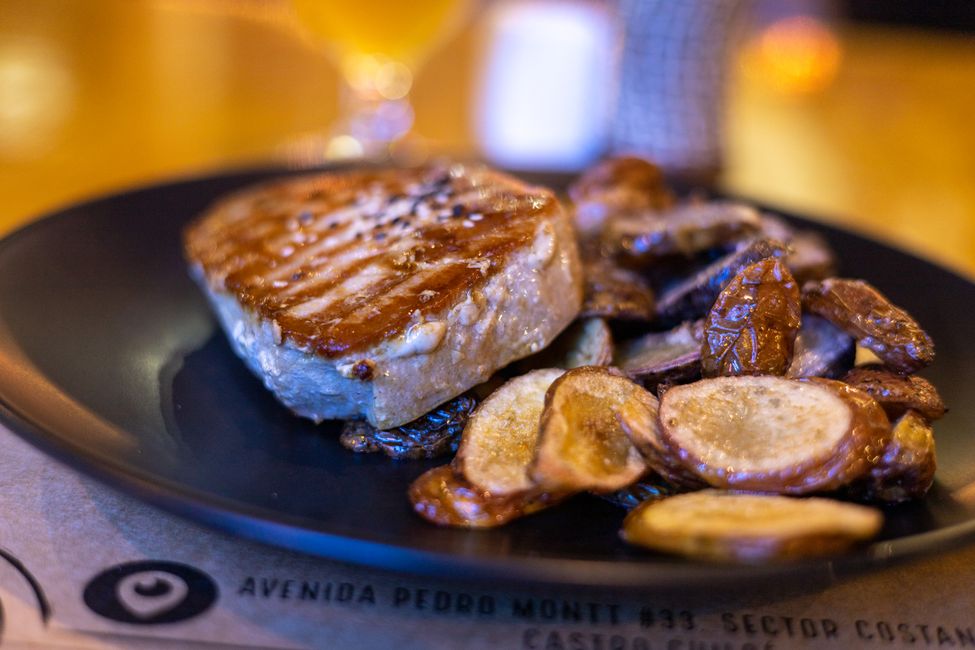01/03/23
Published: 18.03.2023
At the breakfast table I stuff myself with Pancitos with cheese and jam and listen to the superficial tourist conversations. A half German-half French family (with two little screaming pests) and a German mother-daughter duo exchange experiences.
No matter where you travel, one thing is certain: a few Krauts are always present. I buy a bus ticket to Castro, the capital of Chiloé Island and about four hours away. During my 90-minute wait until departure, I take a walk through Puerto Varas. Along the way, I buy a real espresso (not disgusting Nestlé instant coffee!) and a fruit cup. Another relic of the German immigrants is the cake, which sells very well under the German name. Rightly so, as I discovered after enjoying a cheese crumble cake. At the bus station, I meet a solo traveler from Uruguay who is also going to Castro. The bus ride is in no way comparable to my previous ones in Chile. Seats that can recline 120 degrees backward, ample legroom, curtains, double-decker, restroom.
After about four hours, including a ferry crossing to the island, I arrive in Castro. Together with Santiago (the Uruguayan), I visit what is supposed to be the highlight of the sights in Castro: a church built entirely of wood and without clavos (nails), as Marco assured me. From the outside, the church is painted in a bright combination of yellow and purple. I like it. It has more flair than the blocks clad in bare concrete or the ancient sandstone facades that one knows from Germany. Inside, everything is lined with clear lacquered wood. You can see quite a few nails. What a lie! Afterwards, we search for Marco Sur's house (that's the name of my contact in Castro). Marco Sur's eyes sparkle as he tells me everything about Chiloé at a fast pace. I have trouble keeping up. He had a career in the mobile phone industry and now dedicates himself to offering island tours with his Toyota 4x4 and his Airbnb cottage in his chosen home Chiloé. Santiago finds Marco's overnight stay a bit too expensive and looks for another accommodation.
The landscape on Chiloé is hilly, with lots of pastureland, sheep, cows, and changeable weather. The Ireland of South America, but with a decent amount of rainforest.
In the evening, I treat myself to a tuna steak at the restaurant by the harbor. Going out to eat is quite something.
Answer
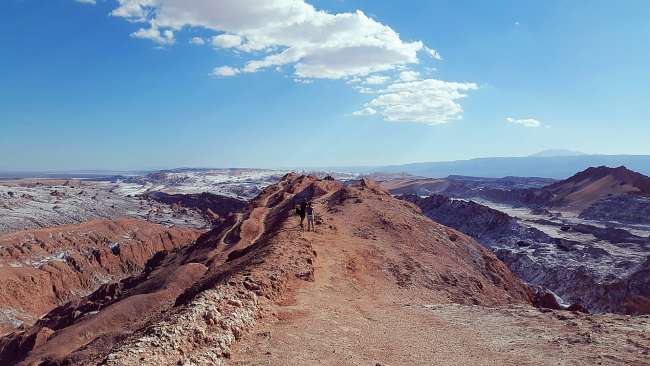
Travel reports Chile
